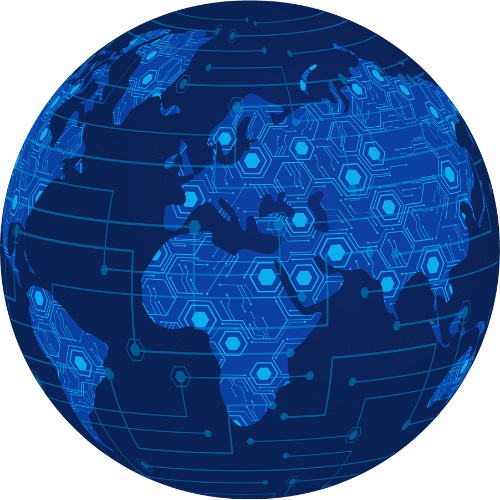The emergence of Software as a Service (SaaS) mobile applications has significantly reshaped the landscape of modern workplaces. Over the past decade, businesses have increasingly adopted cloud-based solutions that allow employees to access software applications via mobile devices.
This shift is largely driven by the need for flexibility and efficiency in an ever-evolving work environment.
As organizations strive to enhance productivity and streamline operations, SaaS mobile apps have become indispensable tools that facilitate real-time collaboration and communication among teams, regardless of their physical location. The proliferation of smartphones and tablets has further accelerated the adoption of SaaS mobile apps. With the ability to perform complex tasks on-the-go, employees are no longer tethered to their desks.
This mobility empowers them to manage projects, communicate with colleagues, and access critical data from virtually anywhere. As a result, businesses are witnessing a transformation in how work is conducted, with a growing emphasis on agility and responsiveness. The rise of remote work, particularly in the wake of the COVID-19 pandemic, has only underscored the importance of these applications in maintaining operational continuity and fostering a culture of collaboration.
Key Takeaways
- SaaS mobile apps are becoming increasingly prevalent in the workplace, offering convenience and flexibility for employees.
- These apps are transforming work processes by enabling remote access to essential tools and resources.
- The benefits of using SaaS mobile apps for work include increased productivity, real-time collaboration, and cost savings.
- However, implementing SaaS mobile apps comes with challenges such as integration, user adoption, and data security.
- Despite security and privacy concerns, SaaS mobile apps play a crucial role in enabling remote work and fostering collaboration, shaping the future of work.
How SaaS Mobile Apps are Transforming Work Processes
SaaS mobile apps are revolutionizing traditional work processes by introducing innovative features that enhance efficiency and productivity. For instance, project management tools like Trello and Asana allow teams to organize tasks, set deadlines, and track progress in real-time. These applications enable users to visualize workflows and prioritize assignments, ensuring that everyone is aligned and accountable.
By breaking down silos and promoting transparency, SaaS mobile apps facilitate smoother communication and collaboration among team members. Moreover, SaaS mobile apps are streamlining administrative tasks that often consume valuable time and resources. Applications such as Slack and Microsoft Teams provide platforms for instant messaging and video conferencing, reducing the need for lengthy email threads and in-person meetings.
This shift not only accelerates decision-making but also fosters a more dynamic work environment where ideas can be shared and developed rapidly. As organizations embrace these tools, they are discovering new ways to optimize their operations and adapt to changing market demands.
The Benefits of Using SaaS Mobile Apps for Work
The advantages of utilizing SaaS mobile apps in the workplace are manifold. One of the most significant benefits is cost-effectiveness. Traditional software often requires substantial upfront investments in licenses and infrastructure, whereas SaaS solutions typically operate on a subscription model.
This allows businesses to scale their usage according to their needs without incurring hefty expenses. Additionally, the cloud-based nature of these applications means that updates and maintenance are handled by the service provider, freeing up internal IT resources. Another key benefit is enhanced accessibility.
With SaaS mobile apps, employees can access essential tools and information from any device with an internet connection. This level of accessibility is particularly advantageous for remote teams or those who frequently travel for work. Furthermore, many SaaS applications offer offline capabilities, ensuring that users can continue working even in areas with limited connectivity.
This flexibility not only boosts employee satisfaction but also contributes to higher levels of productivity as teams can remain engaged regardless of their location.
Challenges and Considerations for Implementing SaaS Mobile Apps
| Challenges and Considerations for Implementing SaaS Mobile Apps |
|---|
| 1. Security concerns |
| 2. Integration with existing systems |
| 3. User adoption and training |
| 4. Data privacy and compliance |
| 5. Performance and scalability |
| 6. Customization and flexibility |
| 7. Cost and budget considerations |
Despite the numerous benefits associated with SaaS mobile apps, organizations must navigate several challenges when implementing these solutions. One primary concern is integration with existing systems. Many businesses rely on a variety of software tools, and ensuring that new SaaS applications seamlessly integrate with legacy systems can be complex.
Organizations must invest time and resources into evaluating compatibility and establishing workflows that accommodate both new and existing technologies.
Additionally, user adoption can pose a significant hurdle. Employees may be resistant to change or hesitant to embrace new tools, particularly if they are accustomed to traditional methods of working.
To mitigate this challenge, organizations should prioritize training and support during the rollout of new applications. By providing comprehensive onboarding programs and ongoing assistance, businesses can foster a culture of acceptance and encourage employees to leverage the full potential of SaaS mobile apps.
Security and Privacy Concerns with SaaS Mobile Apps
As organizations increasingly rely on SaaS mobile apps for critical business functions, security and privacy concerns have come to the forefront. The cloud-based nature of these applications means that sensitive data is stored off-site, raising questions about data protection and compliance with regulations such as GDPR or HIPAOrganizations must conduct thorough due diligence when selecting SaaS providers, ensuring that they adhere to industry standards for data security and privacy. Moreover, employees must be educated about best practices for using these applications securely.
This includes understanding the importance of strong passwords, recognizing phishing attempts, and being aware of potential vulnerabilities associated with public Wi-Fi networks. By fostering a culture of cybersecurity awareness, organizations can mitigate risks and protect their valuable data from unauthorized access or breaches.
The Role of SaaS Mobile Apps in Remote Work and Collaboration
The rise of remote work has underscored the critical role that SaaS mobile apps play in facilitating collaboration among distributed teams. These applications enable seamless communication through chat features, video conferencing capabilities, and file-sharing functionalities. Tools like Zoom and Google Workspace have become staples for remote teams, allowing them to connect in real-time regardless of geographical barriers.
Furthermore, SaaS mobile apps promote a sense of community among remote workers by providing platforms for social interaction and team-building activities. Virtual water cooler chats or collaborative brainstorming sessions can help maintain team cohesion even when employees are physically apart. As organizations continue to embrace remote work as a viable long-term strategy, the importance of these applications in fostering collaboration cannot be overstated.
The Future of Work: Embracing SaaS Mobile Apps
Looking ahead, it is clear that SaaS mobile apps will play an increasingly pivotal role in shaping the future of work. As technology continues to evolve, we can expect these applications to become even more sophisticated, incorporating features such as artificial intelligence (AI) and machine learning (ML) to enhance user experiences further. For instance, AI-driven analytics could provide insights into employee performance or project efficiency, enabling organizations to make data-informed decisions.
Moreover, as businesses continue to adapt to hybrid work models that combine remote and in-office arrangements, the demand for flexible SaaS solutions will only grow. Organizations that embrace these technologies will be better positioned to navigate the complexities of modern work environments while fostering innovation and collaboration among their teams. Ultimately, the future of work lies in harnessing the power of SaaS mobile apps to create agile, responsive workplaces that empower employees to thrive in an ever-changing landscape.
FAQs
What are SaaS mobile apps?
SaaS mobile apps are software as a service applications that are designed to be accessed and used on mobile devices such as smartphones and tablets. These apps are hosted and maintained by a third-party provider and are accessed over the internet, eliminating the need for users to download and install the software on their devices.
How are SaaS mobile apps transforming work processes?
SaaS mobile apps are transforming work processes by providing employees with the flexibility to access work-related tools and information from anywhere, at any time. This allows for increased productivity, collaboration, and efficiency, as well as the ability to work remotely.
What are the benefits of using SaaS mobile apps for work?
Some benefits of using SaaS mobile apps for work include increased accessibility and flexibility, improved collaboration and communication, cost savings, automatic updates and maintenance, and scalability to meet the changing needs of a business.
What are the challenges and considerations for implementing SaaS mobile apps?
Challenges and considerations for implementing SaaS mobile apps include ensuring compatibility with existing systems, data security and privacy concerns, user training and adoption, integration with other tools and applications, and the need for reliable internet connectivity.
What are the security and privacy concerns with SaaS mobile apps?
Security and privacy concerns with SaaS mobile apps include data breaches, unauthorized access to sensitive information, compliance with data protection regulations, and the potential for data loss or leakage through mobile devices.
What is the role of SaaS mobile apps in remote work and collaboration?
SaaS mobile apps play a crucial role in enabling remote work and collaboration by providing employees with the tools they need to communicate, collaborate, and access work-related information from anywhere. This allows for seamless collaboration and productivity, regardless of physical location.
What is the future of work in relation to embracing SaaS mobile apps?
The future of work involves a greater reliance on SaaS mobile apps as businesses continue to embrace remote work, flexible work arrangements, and digital transformation. SaaS mobile apps will play a central role in enabling employees to work efficiently and collaboratively, regardless of their location.




